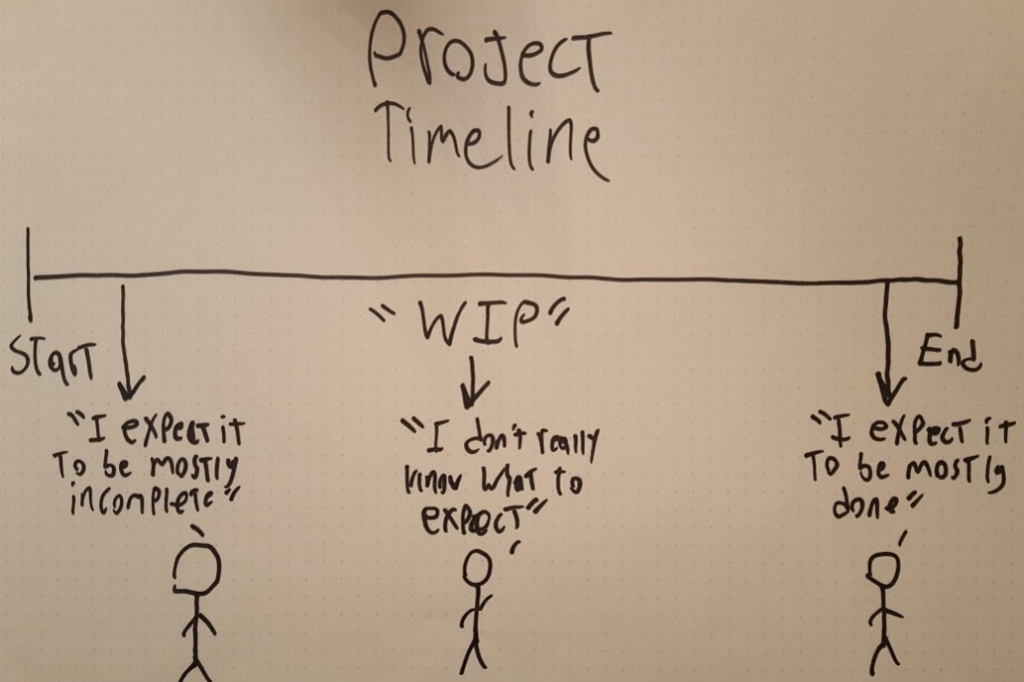A farewell to demos
You may have noticed that I’ve removed links to the demo from here and elsewhere. And if you hadn’t noticed before then you surely have now after reading that sentence.
It felt weird doing this – like I was trying to get away with something bad – so I started making this post as an announcement. You know, transparency and honesty and all that.
But the more I wrote the more it morphed into a postmortem of pre-release demos in general. If that’s not interesting to you then here’s the important bit: Kickstarter backers will always have access to pre-release demos, but I will no longer be making them public.
If you’re interested in how I came to this decision then read on.
Agile
At my old job we practiced Agile development. In short, this meant frequent (and smaller) iterations that would constantly get released to users. These releases were often incomplete or unpolished, but the point was that you were getting something in users’ hands and they in turn could tell you what worked and what didn’t before it was too late to change things.
There’s a lot of info about Agile elsewhere, so here’s a quick image-based summary of its advantages:

When I quit my job to work on Village Monsters I decided to apply these principals as a solo game developer. I had quick iterations and released frequent demos – longtime followers may remember the poorly-named Were Release, a monthly demo that I did for about a year.
To be clear, I don’t regret any of this. It worked really well for me and was tremendously motivating.
But as the game became bigger the effort to create demos increased significantly. Worse, their usefulness to me as a developer started to drop. Making a new demo public – though still exciting – was quickly becoming a burden.
Master of none
So what changed?
Well, at some point Village Monsters reached a confusing middle ground somewhere between Clearly New and Almost Finished. It was now a Work In Progress… and what does that mean? I couldn’t expect players to know if I didn’t.

I was adding more features with each iteration, but this also meant there were more unfinished features. Old bugs were fixed while new bugs were introduced. The game changed in drastic ways on a near constant basis as I refined my design.
The thing about iteration is that it doesn’t imply linear progression; sometimes features (or parts of features) would actually go backward when something wasn’t working right. Each release was objectively more complete than the one before it, but it was a few steps forward and a couple steps back. It was becoming much harder to cleanly demarcate between what was done and what was not.
This confusion was reflected in the kind of feedback I was getting. I still received feedback and suggestions, but more often than not the messages were closer to support tickets. In some cases I even received pretty hostile emails over the perceived quality of the game as if I charged money or tricked them into thinking it was a finished game.
Perception
There are an enormous amount of games out there. People’s time is limited, their wallets are limited, and there’s no incentive for them to be risky with either.
This means perception of a game has never been more important. And to be frank, pre-release demos are a quick way to kill your reputation.
Consider what beta means for a game like Village Monsters vs. what it means for games like Anthem or The Division 2 or even Gwent. The comparison is, in a word, unfavorable.
For me it means a game that’s anywhere from 25-75% complete. For them it’s a game that’s 95% complete.
It’s completely reasonable for most gamers to assume that a beta game will only change in small or subtle ways before release. If you play a demo that’s janky and has bugs and feels incomplete then it’s equally reasonable to assume it won’t be a very good game come release.
And that really sucks for me. The closer the game gets to release the greater the chance that these perceptions are ‘locked in’ and impossible to win back.
So…
If a demo isn’t truly representative of the final product, and they’re increasingly difficult to create, and players aren’t really sure what to do with them… is it worth making them?
That’s the question I asked myself, and that’s why I’ve made the decision to remove them.
Hopefully this most is transparent and you can understand where I’m coming from. If you’re another indie dev then I also hope it helps inform some of your own decisions with how to handle pre-release demos.